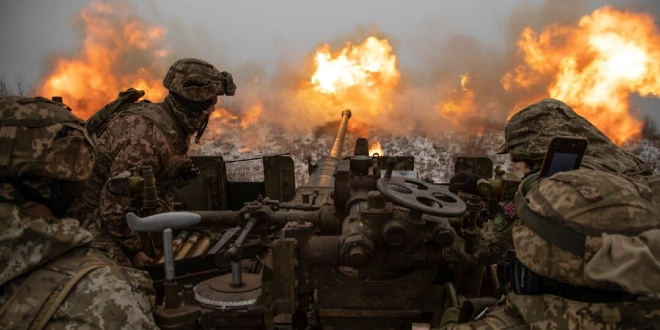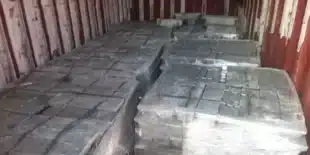On Saturday, Russia launched a substantial missile and drone attack against Ukraine, marking the fourth major offensive since December 29. This move raises concerns about Russia’s strategy to overpower Ukraine’s air defenses.
The Ukrainian Air Force reported that the Russian attack consisted of 40 offensive weapons, including various missiles and strike drones. Ukraine’s air defense managed to intercept eight missiles and used electronic warfare to prevent over 20 others from hitting their targets.
Air raid alarms were sounded nationwide, with missile strikes affecting several regions, including Chernihiv in the north and Dnipro in the east.
In Chernihiv, missile debris damaged empty civilian homes, as reported by local police. The area had been previously hit, which fortunately resulted in no civilian casualties this time, according to the city’s mayor.
Dnipro also experienced missile strikes, with Serhii Lysak, head of the Dnipropetrovsk regional military administration, confirming damage assessment efforts and thankfully no casualties.
Russia’s Defense Ministry claimed the attack successfully targeted Ukrainian military-industrial facilities.
This latest wave of attacks signals a shift in Russian tactics, aiming to stretch Ukraine’s limited missile defense capabilities. During a January 7 assault, Ukraine could only down 18 out of 59 missiles.
Russia has introduced new strategies in its aerial campaign, such as disguising Iranian-made drones by painting them black for night camouflage. Additionally, they have been modifying some drones by relocating engine exhausts to confuse thermal-sensing anti-air batteries.
Ukrainian President Volodymyr Zelensky, in a press conference with British Prime Minister Rishi Sunak, highlighted Ukraine’s urgent need for comprehensive air defense systems, including those capable of countering ballistic missiles.
Ukraine has increasingly relied on mobile firing units for air defense, as stocks of anti-air missiles dwindle. These units are now crucial in combating enemy drones, as pointed out by Air Force spokesperson Yurii Ihnat following a recent attack involving 29 Iranian Shahed UAVs.


